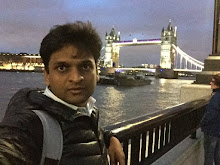
Every composer won’t get a chance to score background music for such large scale period movies where they have ample scope to prove their mastery over music. A.R.Rahman was very lucky in that sense as most of the bollywood directors approach him whenever they take up historic or patriotic subjects. So far we had two OST albums from ARR one for Warriors of Heaven and Earth and Bose which had some great orchestral pieces and now Mangal Pandey adds to the list (Album is going to be released soon).
Mangal Pandey gives much more scope for ARR to prove his versatility in music as it has got varying emotions all through the movie. Though there is no much scope for ARR to enhance the intricate emotions through his music in the background (as there are no visuals depicting intricate emotions), it has got all basic moments of a war film which requires grand orchestral pieces which ARR has used quite well. The sounds-like feel in some of the music cues is only minus point that you can find in this score but I am happy that score is not a single theme based; every situation has got its own unique theme.
There is a typical sudden and rapidly ending grand choir piece (sounds-like Yuva/Ayuhta Ezuthu title music) when we see Amir’s face for the first time on screen. This cue can be said as the theme music of the movie which gets varied and repeated in some other pieces.
Similar to “Waltz of Romance:” in Lagaan, there is good waltz music scored for the English party sequence, which sounds in the fore for very few seconds and runs mildly in the background after that.
There is a friendship theme to underscore the deep emotions between Mangal and Gordon. This piece involves a full-fledged string section playing a nice melody. A dark melody played in flute emulates the love flourishing between Toby and Jhwala. It has some pathos feel in it sounding the mood of Jhwala.
There is a sweet alap played back during the secret meeting of Aamir meets Rani.
The best cue comes when the villagers and the sepoys get together with lights in their hands against the British who have come there to collect the stolen riffles. The music, which starts with horn piece slowly, moves to a grand choir and orchestra giving to the visual.
The marching theme set to some quite different rhythm scored for the grand parade scene where we see thousands of sepoys is again good.
There is a great pretty situational and emotional cue composed for the scene when Aamir comes to know the truth about the kartoos, the shock and anger are well infused in the music by using some strange string playing classical notes along with percussions and temple bells (gives a religious tone).
There is a full throttled orchestral piece, which is an extended for the scene where Aamir stands alone against the British troops.
And finally the End credits have a full length score with strings and thundering percussions, which is nothing but a western orchestration of Mangal song. Initially it sounded like a western classical piece but I recognized it when it moved to a flute piece playing the tune of the second stanza of the song.
The Mangal (Aatma) song itself serves as a nice background for the climax. On the whole, the background score is pretty good and gives an international feel to the movie along with other technicalities. I am waiting to find all these tracks in the OST album that is going to be released shortly and also it may contain some of the cues that i missed to notice while watching the movie.
8.19.2005
"Mangal Pandey" Background Score Review
Posted by P.S. Suresh Kumar at 4:07 PM
Subscribe to:
Post Comments (Atom)



1 comment:
good review
Post a Comment